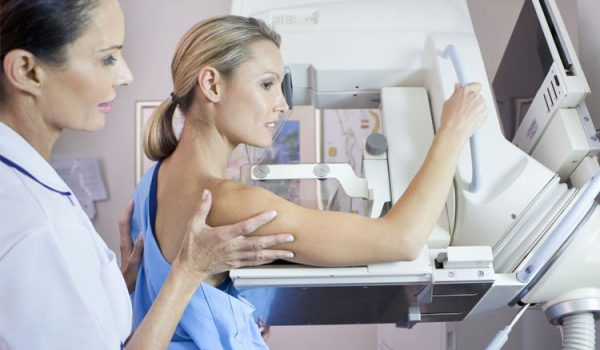Perimenopause is a really important subject and one that is often confused with menopause itself.
Here, leading Fertility Expert and Gynaecologist Dr Raewyn Teirney clarifies the condition and explain ways to help ward off symptoms so you can make the journey as stress-free as possible.
What Is Perimenopause?
Perimenopause refers to the symptoms of hormone imbalance that many women will experience before they reach menopause, which is when they stop menstruating, or when their period stops. The hormone imbalance is simply due to low estrogen.
Perimenopause is actually this period of time leading up to the last menstrual cycle and the onset of menopause. The definition of menopause is basically the end of a woman’s reproductive life. We diagnose menopause when a woman hasn’t had her period for 12 months or more.
This length of time can take years and is so variable. Some women might only have a few symptoms in a short space of time while others might have the whole gamut for a period of years. In Australia and New Zealand the average age of menopause is 51.
What Age Does Perimenopause Start?
Perimenopause varies from woman to woman, but it usually starts after 45 years of age. If women experience it between 40-45 years we say it is early but if they are under 40 we call it Premature Ovarian Failure. This is a medical condition that affects one per cent of women. There are a lot of things that can cause this, ranging from auto-immune conditions, genetic make-up or chemotherapy.
Can You Fall Pregnant If You’re Experiencing The Change?
While women are considered to be in a state of non-fertility once they have reached menopause, they are often still fertile when they are perimenopausal. The fertility is low, but they can be, which is why we always discuss contraception with perimenopausal women.
Common Symptoms Of Perimenopause
The most common symptom is irregular periods – sometimes they can be very frequent, less frequent or very heavy or very light and sometimes even painful.
However, other common ones are hot flushes and night sweats, sleep disturbance, mood swings, irritability and anxiety/feelings of stress and/or sadness.
Weight gain, or trouble maintaining their regular weight is a common complaint and some women might experience a low libido. In later stages, there might be vaginal dryness and laxity. Dyspareunia or painful sex is another symptom, due to low estrogen causing vaginal dryness.
It’s important to remember that these symptoms can also be attributed to other health conditions, so it is best to see your GP if you’re experiencing any of them. For instance, hot flushes might be attributed to fever associated with a virus, thyroid conditions and more. Feelings of emotional or mental imbalance/sadness can be related to mental discord. Irregular periods can be triggered by stress, or even travelling over several time zones (when we are allowed to).
Your GP can perform a simple blood test to measure Follicle Stimulating Hormones (FSH) and estrogen levels, which can indicate if a patient is in a state of perimenopause. We look for high levels of FSH and low levels of Estrogen. Similarly, a blood test can determine levels of the Anti-Mullerian-Hormone (AMH), which indicates the reduced egg numbers and diminished quality.
How To Relieve The Symptoms of Perimenopause
There have been some great studies that show regular exercise reduces perimenopausal symptoms like hot flushes and irritability. Try combining cardio workouts with strength training and stretching workouts like yoga and Pilates This will also help with sleep quality.
As with all fertility health, we recommend women reduce their alcohol intake to the standard two drinks a day or less, stop smoking, avoid illicit drugs. We also recommend women reduce caffeine and spicy foods, as these along with alcohol can trigger hot flushes. Eating a healthy, well balanced diet and avoiding fatty, processed, sugary foods and drinks can help, too.
Women can also look at Hormone Replacement Therapy (HRT) to alleviate symptoms. The hormones prescribed include estrogen and progesterone. Women should see their GP or gynaecologist for advice.

Partner Support
Women who are going through ‘The Change’ need their partners to be supportive. Validate her feelings. She will need a loving, supportive husband/partner at this time in her life. Don’t try to ‘fix’ her, make jokes about her being perimenopausal or belittle the experience. Remind her you love her and that you still find her attractive. Seek counselling (for both partners) if it is affecting your relationship or sex life.
Can We Slow Down The Change?
No. There is no way to put it off. It is up to your genetics as to when you will be going through perimenopause. We do know that women who are smokers may undergo earlier menopause, so ceasing smoking may delay it.
On the whole, perimenopause and menopause are a part of life and there is no way it can be avoided, or indeed delayed. Your body will enter into this phase of life when the healthy, viable eggs in your ovaries begin to decline in numbers enough that it affects the fertility hormones.
Stay Positive!
Perimoenopause and menopause do not have to be negative experiences. It can be a really empowering time of life and one that comes with a lot of freedom (no more scouring the feminine hygiene aisle each month!). Indeed, it is liberating never to have to worry about having your period again or having to buy and deal with sanitary products. My advice is to embrace this next phase of your life – be empowered as a woman who has come this far and still has a great deal to offer the world and so far to still travel in life.










